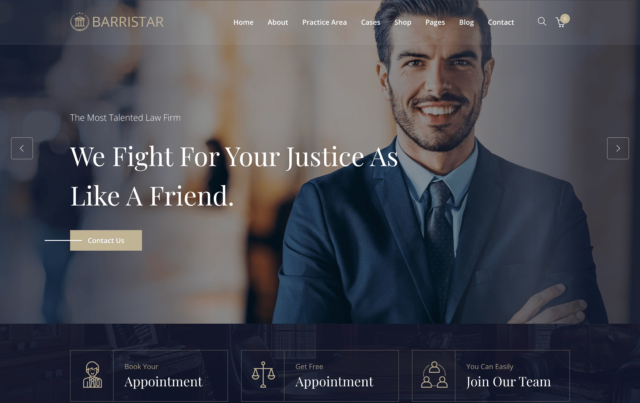Attorney Advertising Rules for the State of New Jersey
Read for more information on the rules for online advertising for New Jersey attorneys
New Jersey Attorney Advertising Rules: Comprehensive Overview
Attorneys practicing in New Jersey must adhere to specific advertising regulations outlined in the New Jersey Rules of Professional Conduct (RPC), particularly Rules 7.1 through 7.5. These rules ensure that legal advertising is truthful, non-misleading, and upholds the integrity of the legal profession. Below is a detailed overview of the key provisions governing attorney advertising in New Jersey.
RPC 7.1: Communications Concerning a Lawyer’s Services
- Prohibition of False or Misleading Communications:
- Lawyers must not make false or misleading communications about their services.
- A communication is false or misleading if it contains a material misrepresentation of fact or law, or omits a fact necessary to make the statement considered as a whole not materially misleading.
- Avoiding Unverifiable Claims:
- Attorneys should not make claims that cannot be substantiated or verified.
- Comparisons with other lawyers’ services are prohibited unless they can be factually substantiated.
RPC 7.2: Advertising
- Permissible Advertising Methods:
- Lawyers may advertise their services through public media, including telephone directories, legal directories, newspapers, periodicals, radio, television, internet, or other electronic media, and through written communication.
- All advertisements must comply with RPC 7.1.
- Retention of Advertising Records:
- A copy or recording of an advertisement or written communication shall be kept for three years after its dissemination, along with a record of when and where it was used.
- Lawyers shall capture all material on their websites, in the form of an electronic or paper backup, including all new content, on at least a monthly basis, and retain this information for three years.
- Payment for Recommendations:
- Lawyers shall not give anything of value to a person for recommending the lawyer’s services, except that a lawyer may:
- Pay the reasonable costs of advertisements or communications permitted by these rules.
- Pay the usual charges of a not-for-profit lawyer referral service or other legal service organization.
- Pay for advertisements, written communications, or other notifications required in connection with the sale of a law practice as permitted by RPC 1.17.
- Lawyers shall not give anything of value to a person for recommending the lawyer’s services, except that a lawyer may:
- Mandatory Disclosures:
- Any advertisement by an attorney or law firm shall include contact information, which may be any of the following:
- Street address of the regular place of business.
- Mailing address.
- Telephone number.
- Fax number.
- Email address.
- Website URL.
- Any advertisement by an attorney or law firm shall include contact information, which may be any of the following:
- Contingency Fee Advertisements:
- Advertisements indicating that no fee will be charged if no recovery must conspicuously state if the client will be responsible for costs or expenses regardless of the outcome.
- Referral Practices Disclosure:
- Lawyers or law firms that advertise a concentration in particular fields of law and refer the majority of such cases to other attorneys must clearly state:
- “Most cases of this type are not handled by this firm, but are referred to other attorneys.”
- Or, if applicable: “While this firm maintains joint responsibility, most cases of this type are referred to other attorneys for principal responsibility.”
- Lawyers or law firms that advertise a concentration in particular fields of law and refer the majority of such cases to other attorneys must clearly state:
RPC 7.3: Personal Contact with Prospective Clients
- Solicitation Restrictions:
- A lawyer shall not solicit professional employment from a prospective client by in-person, live telephone, or real-time electronic contact when a significant motive is the lawyer’s pecuniary gain, unless the person contacted is:
- A lawyer.
- Has a family, close personal, or prior professional relationship with the soliciting lawyer.
- A lawyer shall not solicit professional employment from a prospective client by in-person, live telephone, or real-time electronic contact when a significant motive is the lawyer’s pecuniary gain, unless the person contacted is:
- Prohibited Solicitations:
- Solicitation is prohibited if:
- The prospective client has made known a desire not to be solicited.
- The solicitation involves coercion, duress, or harassment.
- Solicitation is prohibited if:
- Required Disclosures:
- Written, recorded, or electronic solicitations must include the words “Advertising Material” on the outside envelope and at the beginning and end of any recorded or electronic communication, unless the recipient is a lawyer or has a prior relationship with the lawyer.
RPC 7.4: Communication of Fields of Practice and Certification
- Stating Practice Areas:
- Lawyers may communicate the areas of law in which they practice.
- Claims of Specialization:
- Lawyers shall not state or imply they are certified as a specialist in a particular field of law, unless:
- They have been certified by an organization approved by an appropriate authority or accredited by the American Bar Association.
- The name of the certifying organization is clearly identified in the communication.
- Lawyers shall not state or imply they are certified as a specialist in a particular field of law, unless:
- Mandatory Disclaimer:
- Communications indicating specialization must include the disclaimer: “The Supreme Court of New Jersey licenses all lawyers in the general practice of law. The court does not license or certify any lawyer as an expert or specialist in any particular field of practice.”
RPC 7.5: Firm Names and Letterheads
- Use of Firm Names:
- Firm names, letterheads, and other professional designations must not be misleading.
- Trade Names:
- Trade names are permissible in New Jersey, provided they are not misleading or imply a false connection with a government agency, nonprofit organization, or other entity.
- Names of Deceased or Retired Partners:
- The name of a deceased or retired partner may remain in a firm name if the use is consistent with local custom and does not mislead clients.
- Public Office Restrictions:
- Lawyers who hold public office cannot be included in a firm name or in communications during a substantial period in which they are not actively practicing with the firm.
- Jurisdictional Limitations:
- If a firm operates in multiple jurisdictions, advertisements and letterheads must indicate any limitations for lawyers not licensed to practice in a particular jurisdiction.
Record-Keeping Requirements
- Retention of Advertising Records:
- Attorneys must retain a copy of all advertisements for a minimum of three years after dissemination.
- This includes maintaining a record of when and where the advertisement was used.
- Website Record-Keeping:
- Lawyers must capture and retain monthly backups of their websites, including all new or revised content. These backups should be kept for three years to ensure compliance with advertising rules.
Digital Advertising and Social Media Compliance
Transparency on Websites and Social Media
- Applicability of Rules:
- All digital communications, including websites, blogs, and social media platforms, must adhere to the requirements of RPC 7.1 through RPC 7.5.
- Use of Testimonials and Reviews:
- Client testimonials and endorsements must not create unjustified expectations or imply guaranteed results.
- Disclaimers must accompany testimonials to clarify that outcomes vary based on the specifics of each case.
Video and Audio Advertising
- Use of Dramatizations and Actors:
- Videos and audio ads that feature dramatizations or actors must include disclaimers, such as, “This is a dramatization. Not an actual client or case.”
Email and Online Solicitations
- Required Disclosures:
- Email solicitations must clearly indicate that they are advertising material.
Enforcement and Compliance
Oversight by the Supreme Court of New Jersey
- The Supreme Court of New Jersey’s Advisory Committee on Professional Ethics oversees compliance with advertising rules and provides guidance to attorneys.
Consequences of Non-Compliance
- Attorneys found to violate advertising rules may face:
- Warnings or reprimands for minor violations.
- Fines or suspension for more severe or repeated infractions.
Seeking Advisory Opinions
- Lawyers uncertain about the compliance of their advertisements can request an advisory opinion from the Advisory Committee on Professional Ethics or consult the New Jersey State Bar Association.
Additional Advertising Requirements
Contingency Fee Advertisements
- Advertisements referencing contingency fees must disclose that clients may still be responsible for court costs and expenses, even if the case is not successful.
Avoiding Misleading Practices
- All advertisements must accurately reflect the lawyer’s qualifications, experience, and services offered. Misleading statements or omissions are strictly prohibited.
Referral Practices
- Lawyers who frequently refer cases to other attorneys must disclose this practice in their advertisements, clarifying their role in the referred cases.
Conclusion
The attorney advertising rules in New Jersey, outlined in RPC 7.1 through RPC 7.5, are designed to maintain ethical standards and ensure transparency in legal marketing. These rules apply to all forms of advertising, including traditional media, websites, and social platforms.
By adhering to these regulations, attorneys can promote their services effectively while building trust with potential clients and avoiding disciplinary actions. For further guidance or clarification, lawyers are encouraged to consult the Advisory Committee on Professional Ethics or seek assistance from the New Jersey State Bar Association.
Our marketing packages include the following
Search Engine Optimization
Paid Search Management
Legal Content Development
Website Design
Live Chat
Social Media Management









